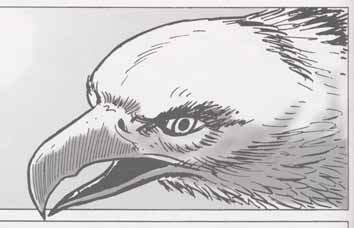 A response to On the fly with Screaming Eagle:
A response to On the fly with Screaming Eagle: A response to On the fly with Screaming Eagle:
A response to On the fly with Screaming Eagle:
Hi Rob,
Thanks for the thoughtful review. Your observations are very astute! Yes, I decided to make the story a blend of different cultures and events, rather than try to follow one actual tribe. It was tough to balance the fiction with the fact, but I wanted to telescope a long series of events into one story.
I do feel I must have failed to effectively communicate one message, though. You seemed to interpret the ending as meaning that the Indians have vanished. I really meant to show that their presence is with us, all around us, and has transformed our history and will continue to form our future. But like I said, that was my ineffective communication, I guess!
By the way, please excuse me for not thanking you profusely for your Peace Party comics. They are outstanding and a great read. I hope they are well-received, and I hope you get a chance to do many more!
Thanks again and take care.
Very truly yours,
Scott Deschaine
Rob's reply
>> I wanted to telescope a long series of events into one story. <<
Well, you did it!
>> I really meant to show that their presence is with us, all around us, and has transformed our history and will continue to form our future. <<
You had an old Indian (Screaming Eagle?) narrating the story at the end. He's talking about Screaming Eagle, who in my mind symbolizes all Indians. The narrator says Screaming Eagle "was never seen again," but "some say he never left this land." To me that implies he did indeed vanish and remains nonexistent or invisible to most people.
If some say he never left, others must say he did leave and is gone forever. That's an ambiguous message at best about someone who symbolizes all Indians. As you know, Indians are still here even if some people think otherwise. They've never gone away or "vanished."
Rob
|
. . . |

|
All material © copyright its original owners, except where noted.
Original text and pictures © copyright 2007 by Robert Schmidt.
Copyrighted material is posted under the Fair Use provision of the Copyright Act,
which allows copying for nonprofit educational uses including criticism and commentary.
Comments sent to the publisher become the property of Blue Corn Comics
and may be used in other postings without permission.